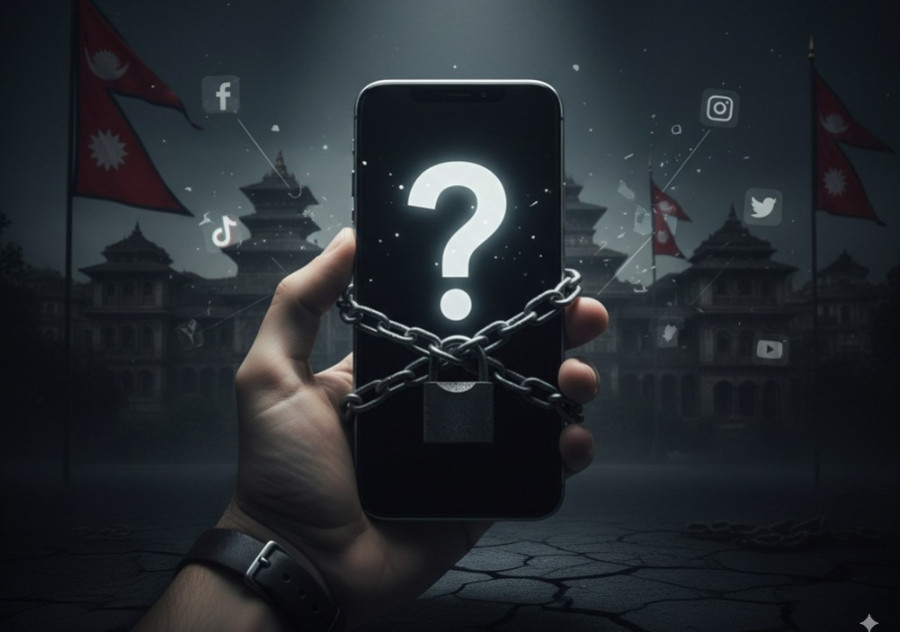National
Nepal’s social media ban explained in six questions
From why the decision was taken to its impact on creators and the digital economy, here’s what you need to know.
Sajana Baral
The government’s decision to ban Facebook and other major social media platforms that failed to register with the Ministry of Communication and Information Technology has triggered widespread debate. While officials argue the move was necessary to enforce regulation following a Supreme Court order, critics warn of serious implications for communication, livelihoods, and freedom of expression.
Why did the government ban social media platforms like Facebook?
The government required all platforms to register within seven days under the Social Media Directives 2080. The decision followed a Supreme Court order mandating registration before operation in Nepal. As most global platforms ignored repeated notices, the government decided to ban them.
How many times did the government warn companies before the ban?
Since November 2023, the government has issued five public notices and written directly to major platforms. Minister for Information and Communication Prithvi Subba Gurung said Meta and others ignored even repeated reminders and extensions. The final seven-day deadline issued on August 28 expired on Thursday.
Which platforms are still accessible?
Seven apps can currently operate in Nepal: TikTok, Viber, Witk, Nimbuzz, and Popo Live are already registered, while Telegram and Global Diary are under review. Thousands of other apps may be disabled.
Which popular platforms will stop working?
Facebook, Messenger, Instagram, X, LinkedIn, Reddit, Threads, YouTube, Snapchat, Pinterest, Signal, Clubhouse and Rumble face restrictions. There is still confusion over whether WhatsApp and Gmail will be affected, as officials debated if they fall under social media.
How will the ban affect creators and the economy?
Facebook had just launched a monetisation programme in Nepal, allowing creators to earn directly through reels, posts and videos. The ban halts these earnings, affecting digital income and the wider economy.
What could happen next?
Past bans suggest users may turn to VPNs and OpenDNS, which could increase international bandwidth costs and cut into the revenue of local internet providers. When TikTok was banned earlier, Ncell reportedly lost nearly Rs 600 million of monthly revenues. Rights groups are expected to raise concerns over freedom of expression in the wake of this broader ban.




 9.17°C Kathmandu
9.17°C Kathmandu













